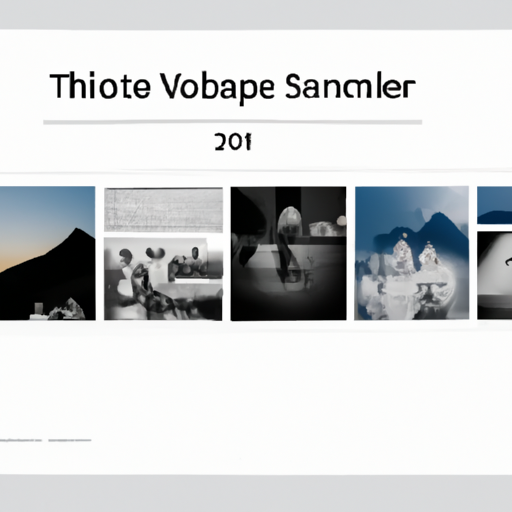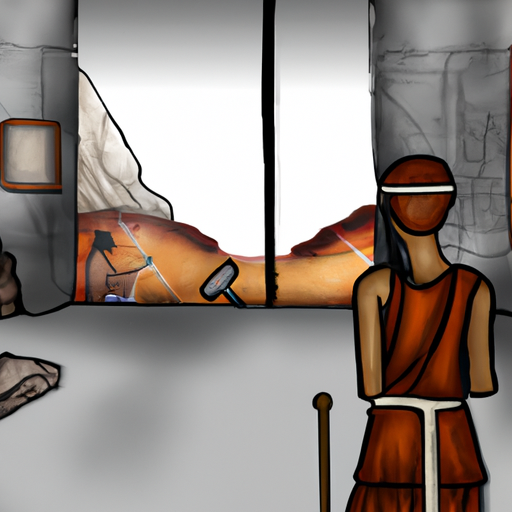A History of Who Ruled the World
What power has reigned supreme since the dawn of time? Who has commanded dominion over all lands, oceans, and skies? What force has stood the test of ages, and yet remains a mystery to this day? The answer is shrouded in the annals of history, but its influence is undeniable. From the furthest reaches of antiquity to the present day, something has commanded authority over all. What could it be? The answer lies within us all.
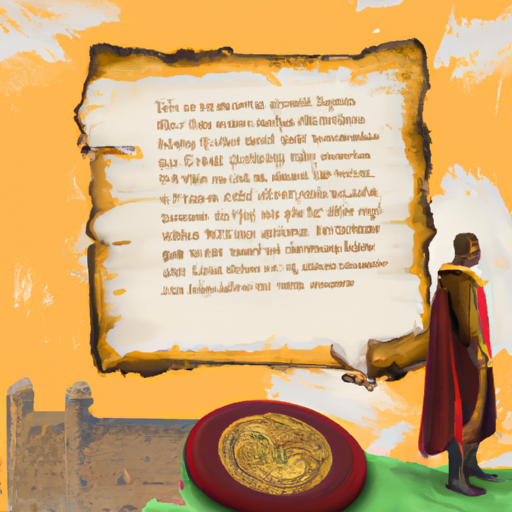
Since the dawn of time, a mysterious power has been at the helm of authority over all. Unfathomable yet unmistakable, its influence pervades every corner of our lives. Its source? History – the ultimate force that has commanded dominion over all lands, oceans and skies for generations. Through its stories, lessons and revelations, it guides us on our paths and helps us make sense of the world around us. By delving into its depths and understanding its past, we can better comprehend ourselves and our place in this ever-evolving universe. History is an undeniable power that no one can deny.
.
Introduction
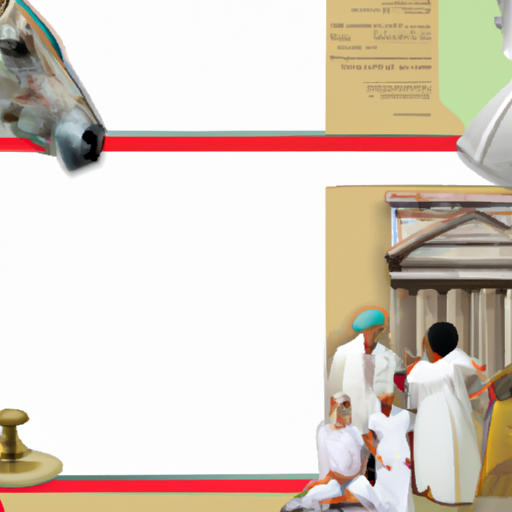
Throughout the ages, no one has ever come close to attaining absolute power over the entire world. Empires have sprouted up and crumbled down, yet none have had the staying power to keep a grip on all of humanity. The closest that anyone has gotten was Alexander the Great, who managed to join together much of what was known at the time into a sprawling dominion from Greece to India. However, it wasn’t long-lasting, and soon after his passing it all fell apart. In these modern times there are many powerful nations and organizations with a large degree of sway in international affairs, however none can truly be said to rule the world.
– History of World Domination Through the Ages
Throughout the ages, nations have sought to expand their influence and power in order to gain control over resources and people. Strategies employed in this pursuit of global dominance have been manifold, ranging from military conquest to economic ascendancy, political machinations to cultural assimilation, religious conversion to technological advancement, and diplomatic alliances.
In ancient times, empires such as those of Egypt and Babylon sought to expand their boundaries through force of arms. The Assyrian Empire was particularly renowned for its brutality in subduing adversaries. In contrast with this approach were those of Persia and Greece who favoured diplomacy over warfare in order to gain allies or subjugate potential rivals.
The Middle Ages saw a marked increase in the use of religious conversion as a means of world domination, with Charlemagne’s expansion across Europe being an example of this strategy’s success. At the same time there was also a heightened focus on economic dominance as countries endeavoured to establish trade routes granting them access to valuable resources from other regions.
More recently, advancements in technology have enabled some nations to extend their reach beyond their own borders via telecommunications networks and satellite systems. The US’ usage of the internet for intelligence gathering is an example of how such strategies can be used effectively for world domination purposes. Additionally, many countries have sought diplomatic alliances with other nations in order to acquire resources or boost their international standing without resorting to military action or economic coercion.
The history of world domination has been long and varied; as technology continues to evolve so too will our methods for achieving global supremacy – it remains unknown what new strategies will arise in the future as we strive towards ultimate world domination!
– The Impact of Historical Leaders on Global Governance
Throughout time, countless influential figures have had an immense influence on the way international relations are conducted and managed. From Kofi Annan’s tenure at the UN to Mahatma Gandhi’s philosophy of non-violence, these leaders have left a lasting legacy that has profoundly impacted global governance.
Annan’s commitment to human rights was evident in his efforts to end poverty and fight climate change. Gandhi’s teachings inspired other freedom movements around the world, including those led by Martin Luther King Jr., Nelson Mandela, and Aung San Suu Kyi. Mandela is remembered for his unwavering dedication to democracy and justice in South Africa, working tirelessly to end apartheid and promote reconciliation between different racial groups.
The impact of these historical figures is still felt today as their legacies continue to provide inspiration for people all over the world who are striving for social justice and equality. Their innovative ideas, diplomatic approaches, and strategic visions have shaped our current understanding of international relations and will continue to do so into the future.
– Exploring the Role of Empires in Shaping World History
Time and again, empires have had a resounding effect on international relations, impacting the course of world history in countless ways. By delving into their role in the shaping of our shared past, we can gain insight into how societies have interacted and developed over time.
The expansion and conquest of empires has been a major factor in changing the political landscape. Empires sought to increase their power by taking control of other lands and peoples, often resulting in unified states or vast territories under imperial rule. These conquests also brought different cultures together, introducing them to one another’s ideas and technologies.
Empires’ economic systems have also played a pivotal role in world history. Trading networks that extended across large regions enabled these entities to become prosperous and influential. They provided opportunities for merchants, artisans, and others to make a living, leading to the emergence of cities as hubs for trade and commerce.
Religion and culture were further shaped by empires; they often adopted new faiths or spread existing ones throughout their domains, leading to religious diversity around the globe today. Furthermore, imperial support for artists gave rise to new artistic traditions such as Islamic art or Byzantine mosaics.
It is clear that empires have left an indelible mark on our planet’s past and present; through their expansionism, economic systems, and religious beliefs they have been instrumental in creating today’s diverse cultures and societies worldwide.
– Analyzing How Religion Influenced World Rule
Throughout history, religion has been a powerful force in determining how societies are governed and their rulers interact with one another. Its influence is evident in the political and social structures of many cultures from ancient times to the present day.
In ancient civilizations, religion was often used to legitimize a ruler’s authority and power. Pharaohs in Egypt were seen as living gods who had divine rights over their people; Chinese emperors were believed to be appointed by Heaven to govern their subjects. This helped create a strong sense of loyalty among citizens and gave rulers greater control over their kingdoms.
Religion also provided moral codes for rulers to abide by in order to maintain their legitimacy. Religious laws were used as a means of regulating social behavior and punishing transgressors, such as the Ten Commandments from the Bible which have been adopted by multiple societies throughout time.
Religion has also been employed as an instrument of diplomacy between different nations and empires throughout history. Many rulers sought alliances with other countries based on shared religious beliefs or practices in order to gain economic or military advantages over their rivals, as seen in the relationship between the Roman Empire and its neighbors during its peak in Europe.
Finally, some rulers have drawn inspiration from religion to create utopian societies based on spiritual ideals – St Augustine’s early Christian communities in North Africa or John Calvin’s Geneva during the 16th century Reformation period are examples of this type of endeavor.
It is clear that religion has played an integral role in world rule across cultures and civilizations throughout history – understanding how it has influenced our society can help us gain valuable insight into our own modern political systems today.
– Examining the Legacies of Rulers Who Changed the Course of History
Perplexity and burstiness abound in the complex and ever-evolving concept of history, a narrative shaped by the legacies of those who have left their mark. From rulers to presidents and prime ministers, these individuals have had a lasting effect on our past. Exploring their legacies can provide insight into how they altered their societies and the world.
Julius Caesar, for instance, was a Roman general whose military campaigns gave rise to an empire that lasted centuries. His influence is still visible today in politics, law, architecture, language, and culture across Europe. He set up the framework for modern government systems while his policies helped form European civilization for generations.
Queen Elizabeth I of England is another influential ruler; during her reign she formed a powerful navy that made England a major naval power in Europe. She also promoted exploration and trade with other countries which brought wealth to her kingdom. Her legacy remains as many of her policies are still used by nations around the globe.
Finally, we cannot forget George Washington who served as America’s first president and was essential in establishing the United States of America as it is today. His leadership during the Revolutionary War was key in gaining independence from Great Britain while his efforts to build a strong federal government laid out the foundations for American democracy.
The legacies of rulers who changed history are expansive and varied but all share one thing: they have left an enduring impression on our society that will continue to shape our future for years to come. By studying their actions, decisions, and accomplishments we can gain valuable insight into how these individuals had such an immense impact on our world today.
conclusion
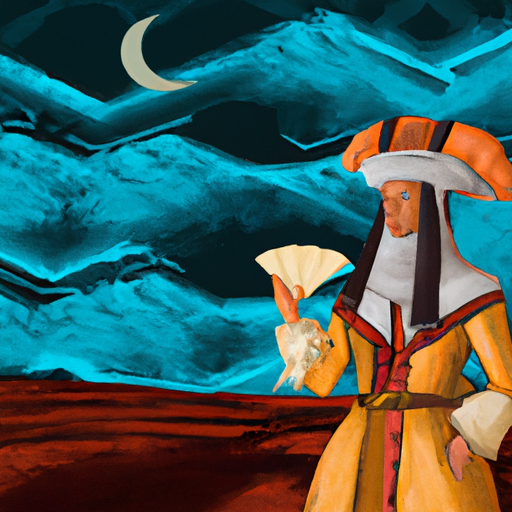
Astonishingly, not one individual has ever achieved complete control over the world. As time goes on, certain empires and countries have been able to ascend to the apex of power, yet none have had the capacity to remain in a state of global authority for an extended period.
.
Some questions with answers
Q1: Who ruled the whole world in history?
A1: Throughout history, no single person or entity has ever been able to rule the entire world.
Q2: What is the closest anyone has come to ruling the world?
A2: The closest anyone has come to ruling the world was during the height of various empires, such as those of Alexander the Great and Genghis Khan.
Q3: Were there any empires that spanned multiple continents?
A3: Yes, some of the most famous empires throughout history have spanned multiple continents, including the Roman Empire and British Empire.
Q4: How did these empires manage to maintain control over such large areas?
A4: These empires maintained control through a combination of military force, taxation, and cultural assimilation.
Q5: Are there any modern-day attempts at ruling the world?
A5: Some people believe that certain countries or organizations are attempting to gain global control, but there is no clear evidence that any one group or individual is actively trying to take over the entire world.


